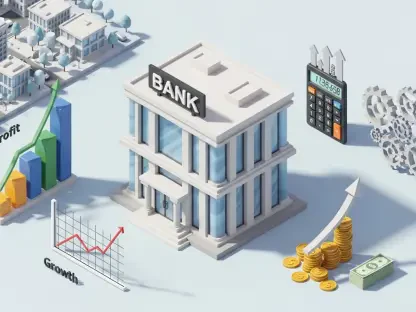Amidst a backdrop of geopolitical tensions and economic sanctions, the BRICS nations—Brazil, Russia, India, China, and South Africa—are diligently working to create a new cross-border payment system. This initiative comes in the wake of Western sanctions that particularly affected Russia, excluding its banks from SWIFT, the global interbank communication network. A tweet by a prominent crypto influencer, Amelie, has highlighted advancements in this realm, suggesting that XRP, a digital financial asset famed for its rapid and efficient international transactions, might emerge as the global standard for such payments.
Development and Integration of Financial Instruments
Russian Finance Minister Anton Siluanov recently confirmed that Moscow is deeply involved in developing financial instruments within BRICS, focusing significantly on a cross-border payment system. This system aims to integrate national currencies and harness digital financial technologies such as blockchain. The effort is deemed essential for strengthening trade and fostering economic growth among BRICS countries. Such a system also aims to diminish reliance on Western-dominated networks, providing BRICS with a more autonomous and resilient financial infrastructure.
The necessity for this new system has gained momentum, particularly as Western sanctions have pressured BRICS nations to seek alternatives. This development is not merely a defensive measure but also a strategic move toward enhancing economic sovereignty. Siluanov has pointed out that this system aims to mitigate disruptions and offer a stable platform for international trade and commerce. One notable aspect is that XRP had been tested by BRICS countries in the past for its capabilities in facilitating fast and secure transactions. Although the details of its inclusion in current plans are still uncertain, the consideration of XRP aligns with the broader adoption of blockchain technology worldwide.
Economic Stability and Blockchain Utilization
Recent efforts by BRICS nations demonstrate a significant commitment to establishing a financial infrastructure that minimizes dependence on Western systems. The integration of blockchain technology in cross-border payments could revolutionize global finance by promoting efficiency, transparency, and security. This initiative is particularly motivated by geopolitical factors, with Western sanctions acting as a catalyst for change. Beyond sanctions, BRICS countries are keen on showcasing their economic stability and growth. Siluanov highlighted Russia’s economic achievements, noting a projected decline in the budget deficit from 1.7% of GDP last year to 0.5% of GDP this year. These figures underscore an intentional push towards economic stability and resilience amidst global challenges.
Additionally, the broader trend of blockchain utilization for international payments suggests a shift towards more decentralized and secure financial systems. Despite the speculation around XRP’s potential role, there remains uncertainty about which digital assets or networks will be officially chosen. Nonetheless, the current direction indicates a strong interest in leveraging blockchain’s capabilities to provide a more efficient and reliable payment system. Such advancements could significantly alter the balance of global economic power by reducing the influence of Western-controlled financial networks.
Path Toward Financial Independence
The drive for an independent financial infrastructure underscores BRICS nations’ determination to pave their own paths in the global economy. The reliance on blockchain technology exemplifies a modern approach to addressing traditional financial challenges. The emphasis on reducing dependency and enhancing financial autonomy reflects broader geopolitical and economic motivations. This is evident in BRICS’s proactive measures to fortify their financial systems against external pressures. The adoption of innovative digital financial technologies signals a forward-looking perspective, aiming to sustain robust trade and economic relationships among member countries.
Creating this new cross-border payment system is not just about technological advancement but also about political and economic strategy. As BRICS nations collectively navigate geopolitical complexities, the pursuit of a stable and independent financial network becomes increasingly critical. In doing so, these nations can better safeguard against market volatility and potential sanctions, thereby ensuring more predictable and sustainable economic development.
Future Perspectives and Global Impacts
Amid the backdrop of rising geopolitical tensions and stringent economic sanctions, the BRICS countries—Brazil, Russia, India, China, and South Africa—are earnestly working on developing a new cross-border payment system. This initiative gained momentum after Western sanctions particularly targeted Russia, leading to the exclusion of its banks from SWIFT, the global interbank communication network. A tweet by notable crypto influencer Amelie has brought attention to significant progress in this area. She suggests that XRP, a digital asset celebrated for its rapid and highly efficient international transactions, may eventually become the global standard for cross-border payments. Such a development could reposition the BRICS nations in the global financial landscape, reducing their dependency on Western financial systems and networks, thereby enhancing their economic sovereignty. This new system aims to create a more resilient and autonomous international financial structure for its member nations.









